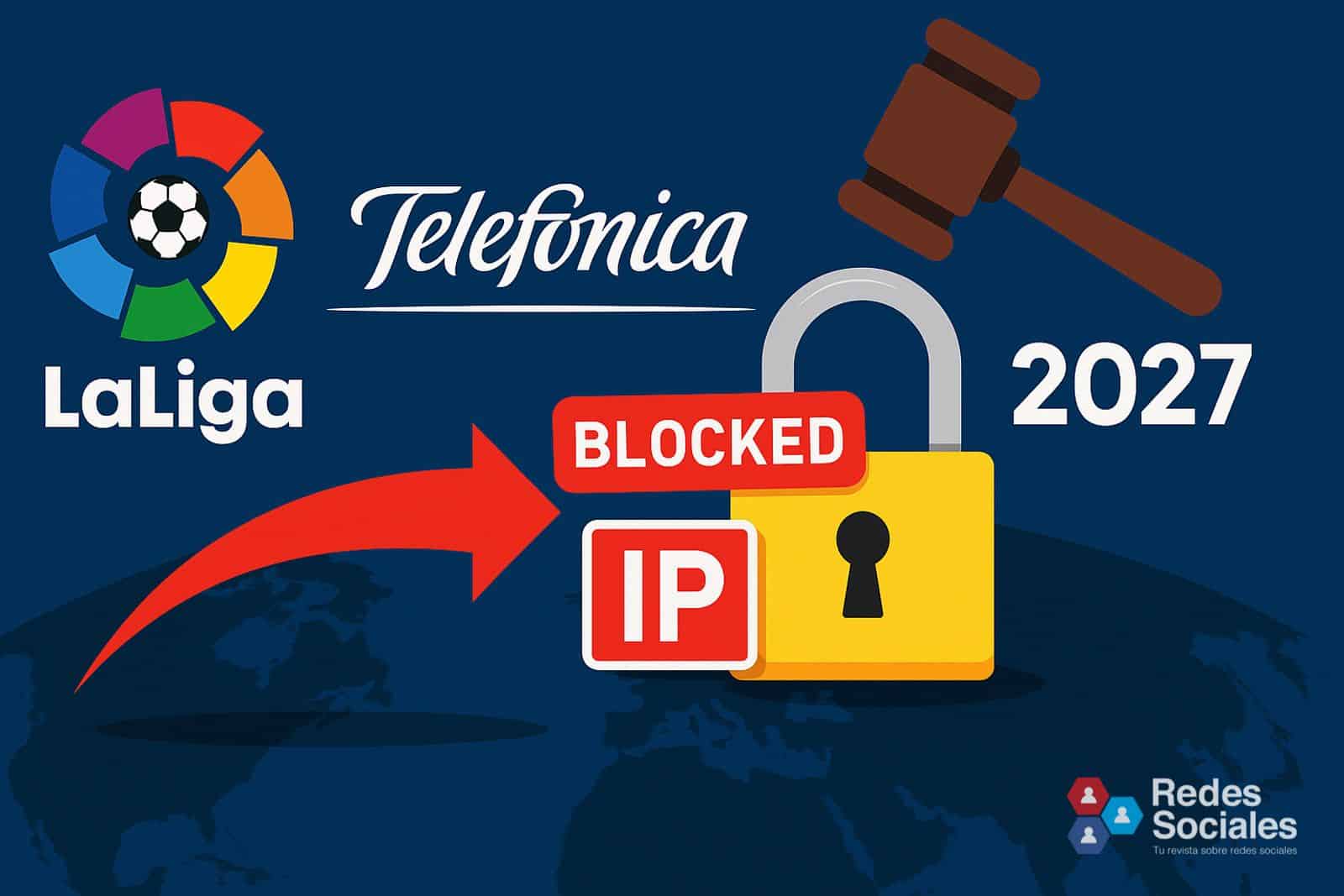The recent publication of the ruling from the Commercial Court No. 6 of Barcelona has confirmed what has been quietly applied for months: LaLiga and Telefónica have judicial backing to block IP addresses in Spain as part of their offensive against audiovisual piracy. The ruling, dated December 2024, not only authorizes the blocks already in place but also allows for their dynamic updating until the end of the 2026/2027 season. All of this, without prior notification to users or technical guarantees to prevent collateral damage.
A Silent Campaign, Now with Judicial Endorsement
Since February, thousands of websites have been affected by mass IP blocking by operators like Movistar, O2, Vodafone, and Digi. Although these are supposedly addresses used for illegally streaming football matches, in practice, many belong to shared infrastructures like Cloudflare, leading to collateral damage affecting perfectly legal sites that simply share the same network.
The ruling, which this outlet has accessed, does not include the complete list of initially blocked IPs, nor does it establish transparency obligations toward users. It also does not require technical checks to avoid false positives, generating alarm among experts and system administrators.
New Technologies, New Threats (According to LaLiga)
The judicial text notes that LaLiga and Telefónica have pointed to technologies such as ECH (Encrypted Client Hello) from Cloudflare and Private Relay from Apple as elements that hinder effective domain-based blocking. These tools, designed to protect user privacy, encrypt key parts of web traffic, preventing operators from inspecting which sites are being visited. For the plaintiffs, these technologies facilitate the anonymity of pirate platforms.
In response, the ruling authorizes IP-based blocking, allowing lists to be updated in real-time on match days, even during ongoing events. Operators must execute the blocks “as soon as possible,” in some cases without any notice to users.
A System Without Opposition and Limited Oversight
All the operators involved—Movistar, Vodafone, Digi, and MásOrange—conceded to the procedure, meaning they accepted the measures without raising judicial opposition. This lack of resistance has facilitated a quick and firm ruling, but it has also generated criticism from organizations defending digital rights, who are concerned about the consolidation of technical censorship mechanisms without public debate or impact analysis.
Moreover, the resolution states that the blocking may continue beyond the current season, resuming after the summer break on August 16, 2025, covering the entire duration of the current television rights contract between LaLiga and Telefónica.
A Precedent for the Future?
This case marks a milestone in Spain regarding the judicial use of filtering and blocking techniques on the internet. While LaLiga defends its right to protect its content against evolving piracy, many experts warn that the ruling opens the door to an extensive control model without sufficient safeguards.
The ruling considers that the operators’ “concession” “does not harm third parties,” ignoring the numerous complaints from administrators and developers whose websites have been blocked with no relation to illicit activities.
In a context of growing tension between copyright, privacy, and freedom of access to information, the LaLiga-Telefónica case could mark a turning point in how internet governance is understood in Spain. Now, with the ruling available (though incomplete), it is in the hands of civil society, legal experts, and the tech ecosystem to open a debate that has until now been deliberately silenced.
Via: Banda Ancha, Redes Sociales, and Poder Judicial
Illustration via AI free images.

